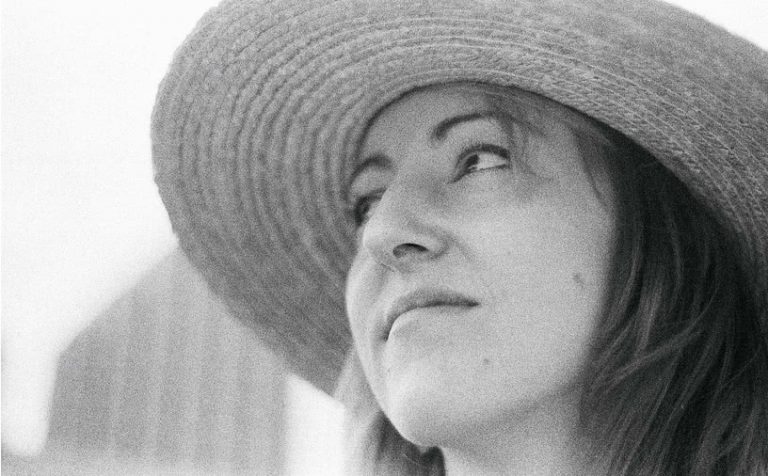Angela Garrick has created music in some of the most interesting and exciting projects to come out of Sydney over the past decade, including Circle Pit, Southern Comfort, Ruined Fortune and Straight Arrows. Under the name ‘Angie’, she released an exceptional record Shyness this past March.
She is one of a number of artists who have received a boost from the City of Sydney’s excellent Live/Work program, which offers people working in a creative field the opportunity to take up a heavily subsidised 12-month inner city apartment lease.
We chatted to Angela about the Live/Work program, the current music scene in the city, and she gives some clever advice to young artists struggling to juggle it all.
Find out more about applying for the program here.
—
How did you come to hear about the Live/Work spaces program?
I first heard about the Live/Work spaces program when I was working on a curatorial project with two Sydney artists, Danielle Zorbas and Sophie Kitson, for Underbelly Arts Festival back in 2015.
Sophie was living in the apartments at the time as an independent curator. We would have a lot of our meetings at the space as it was a convenient location. From there I thought it would be a great situation for me, so I prepared an application, with a focus on both music recording: preparing a new album, and various art and curatorial projects.
Could you explain how the Live/Work spaces program helped you and your art out, specifically?
It helped me out in the sense that I could not afford to live on my own in the ‘real world’ or in the Sydney market. But being able to have a space that was mine meant I could do things like rehearse in my studio apartment and leave all my instruments set up, or spend a week sewing three-metre-long canvas sheets together to make screens for our Underbelly project. I could not do those kind of things in a share house, so it was very beneficial in that regard.
Having the space to work and live on my own gave me time to think and plan and conjure up many ideas for music and artworks, which was also invaluable. I was also able to host some artists travelling from overseas, and musicians, which was another opportunity afforded to me by the independent living of the spaces.
How do you feel about Sydney’s music scene as it stands at the moment? What practical/not-so-practical changes would you like to see implemented?
I think the Sydney music scene is very diverse and vibrant. I don’t get out too much, but sometimes there seems like there could be six events on in one night that all sound interesting. When I was a teenager it felt like there was there was more of a monoculture, whereas now there is a strong independent music scene and community.
The changes that we need, and this is very important, is support for available and cheap venues in which to present music. And I don’t mean pubs or clubs.
The independent music scene is always on the move and sometimes that feels exhausting. I think we should have more support to set up venues, and more support for the people that do, as in recent times we have seen some of the best, interesting and safe spaces for music close down – Black Wire Records, in particular.
What would be your advice to anyone hoping to apply for this program? How was the process?
I would say that you need to clearly outline your practice and plan for the year.
I had a strict plan of what I set out to achieve, and I definitely stuck to that plan. Also I wouldn’t say to worry about putting your fingers in too many pies, I feel that experimentation and collaboration is key, and sometimes what sets you apart.
I wish I had more of a chance to collaborate with my fellow tenants but we were all quite busy so that didn’t happen as much as we all would have liked. I did collaborate with lots of musicians and artists throughout the year, however, which made the experience more thrilling and challenging than had I done everything on my own.
Any advice for young artists currently juggling work/art/life and feeling like it’s too hopeless or too hard?
Um, well I feel like that all the time, and I’ve felt like that for the past 15 years. It is something you need to manage daily and make a commitment to. And most artists I know do work – at the moment I work full time, and I was for most of the residency — that’s the reality of living in an expensive city like Sydney. I try to be really organised, I address emails in the morning, so around work and the rest of the day, I can devote my time to developing ideas and seeing them come to fruition.
I would say for advice, don’t be too hard on yourself.
Most artists I know give themselves a hard time for not being able to produce constantly. You don’t have to be producing all the time. Most artists I know are the most hardworking people – they balance three jobs and in the small spare time, are working all night on something, and never relax. Make sure to include leisure time, because otherwise it does feel too hard and all-consuming.
Find out more about applying for the program here.



































